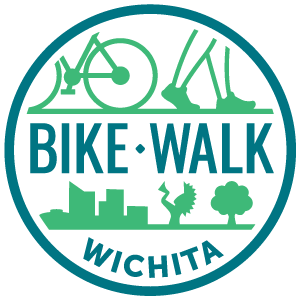African Refugees Receive Bicycles
BWW ReCycle and the International Rescue Partnership Prove Essential
Recently last December, the International Rescue Committee (IRC) brought three women to Bike Walk Wichita (BWW) to pick out and receive bicycles. This group of women was originally from the Democratic Republic of Congo (DRC). Their desire to leave what’s been described as a hostile environment has been over a decade-long journey for them. A mother and daughter and a friend, the three women eventually immigrated to the United States a few months ago, and they made their way to Wichita.

The International Rescue Committee works in more than 50 countries and in 28 U.S. cities to help people affected by humanitarian crises to survive, recover, and rebuild their lives. Refugees are people fleeing violence and persecution–and countries in crisis. They are seeking safety and the chance to move their lives forward. The IRC works with government bodies, civil society actors, and local volunteers to help them translate their past experiences into assets that are valuable to their new communities.
One of ReCycle’s volunteer bike mechanics Carey had heard online that the National IRC was promoting Rides for Refugees and bike shops were providing bicycles. So, Carey thought, “We could do that.” So in 2016, she reached out to the local Wichita IRC with the idea we could provide bicycles and bike riding safety classes. It was then, BWW and ReCycle Bike Shop collaborated and partnered with the local Wichita IRC.

Carey and volunteers at ReCycle began teaching a few bike safety classes for the refugees. As a licensed cycling instructor, Carey utilized the League of American Bicyclists (LAB) training curriculum and brought forth content for safety instruction. Some refugees had never owned or rode a bicycle. As more refugees opted for bicycles, ReCycle began to streamline the process. Providing some basic instructions on the components of the bicycle and providing the right size bike for each individual. The bicycle recipients test ride the bikes in BWW’s parking lot, and they are taught the basics of riding, stopping, and shifting. Carey explains, “Bike shifting is often new. In their overseas refugee camps, they are often sharing a single-speed bicycle with twenty other people.”
In the last few years, the number of refugees has started to increase.
Since 2021, many displaced people have been from Afghanistan. The U.S. was one of many countries willing to assist. [1] Some of those refugees found their way to Wichita, and BWW was glad to accommodate them.
In 2023 and 2024, due to tensions emerging from the withdrawal of the United Nations stabilization mission, the displacement within the Democratic Republic of Congo (DRC) is expected to increase and drive people into neighboring countries as refugees. [2]
Upon seeing a need for a more procedural process, Bike Walk Wichita’s ReCycle Bike Shop Manager, Cody worked with the IRC and Carey to establish an agreement between the two organizations for a regular schedule.
Carey reiterates the importance of this partnership as Wichita’s IRC director explained to her, “This is so important that you do this because the bicycle is something for them, that helps give them independence and freedom that they’ve been working so hard for.”
After fleeing from the DRC, this particular group of women lived in Kenya for twelve years, before making their way to the U.S.
They requested for their names to remain anonymous at this time but were anxious to tell their story. Not shy at all, speaking English well, the mother explains, “I’m just praying to God that to my fellow Congolese to get a chance and opportunity to be here also because I know, they need it. They are suffering. So if I get the opportunity to call them here, I would do that.”
“This is my Congolese flag,” pointing to one side of her bracelet. Yeah, I don’t want to forget my roots where I come from. Then showing the other, “And this is where they hosted me, in Kenya. So a combination of where I come from.”
There are currently more that 100 different armed groups vying for territory and control in eastern DRC. This conflict is causing massive displacement and urgent humanitarian needs as families flee their homes for safety. The armed conflict and insecurity have displaced 4.5 million people within the county. [3]

Bike Walk Wichita’s new location in 2023, provides a larger parking lot for training cyclists. Most refugees are only with the IRC for a few months. The refugees get extra services, but not always convenient if they want to learn more about bicycle repair, riding etc. With ReCycle’s expanded hours, it provides a place they can come back to if they desire.
Motivated to improve assistance and better communication with IRC refugees, Carey teamed up with Cody’s graphic skills and visualized additional “universal” training aides–helping break down language barriers. They created documents to be able to be used inclusively for our non-English speaking friends and anyone else who needs images rather than words. They provide handouts for teaching Safe Urban Riding Information and more. Here’s just one example below. Pre-Ride Checklist: reminding riders to check tires and air pressure, brakes, chain. Wearing a helmet, locking your bike, using lights, and being seen wearing colors.
Bibliography
[1] Wichita city leaders prepare for the arrival of Afghan refugees. KWCH News. Oct. 5, 2021
[2] reporting.UNHCR.org / Operational / Situations / DRC Situation
[3] https://www.mercycorps.org/blog/drc-humanitarian-crisis The facts: The humanitarian crisis in the DRC
Story & photos – JH




Leave a Reply